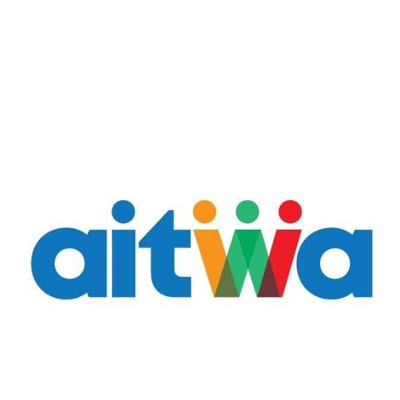
AITWA seeks resolution of E-Way Bill issues
The All India Transporters’ Welfare Association (AITWA), which is an apex body of companies covering 65 per cent of the organised road transportation of the country, has demanded the resolution of E-Way Bill issues and said that its penalties have especially become a problem for all. Imagine 200 per cent penalty, which is a minimum of about Rs 10 lakh, just because the driver could not complete the journey on time, it was pointed out.
AITWA has been writing letters to the government on various issues of the transport industry, mainly on the issues of impractical E-Way Bill under GST and unviable pricing policy of diesel. The AITWA President and other office-bearers have also been meeting government officials regularly to explain their problems; however, no resolution or respite has ever been provided. Ministers are not available for any direct interaction.
To address the issue of the existence of the transporters, and to get the attention of the Government of India, AITWA has joined the Bharat Bandh of one day on February 26, 2021, called by Confederation of All India Trade Associations (CAIT). The transport associations have confirmed their support to AITWA in this one-day non-operation of transport in protest against the E-Way Bill and diesel issues. The other national associations are also considering their support. This is to reject booking and movement of all E-Way Bill oriented goods for one day. Transport companies will be asked to park their vehicles between 10 am to 6 pm as a symbolic protest. All transport godowns will display protest banners. All customers will be requested by transport companies not to book or load any goods on February 26.
GST & E-Way Bill
Goods and Service Tax or GST was introduced with great promise about the simplicity of operation and business. GST brought along the E-Way Bill. GST has a robust system in which a seller and a buyer make a deal of selling their goods at a certain rate of a certain quantity and fix up the responsibility of payment of GST between them; the deal is posted on government portal called GSTN. The role of the transporter is mere movement of the goods from the consignor to consignee. A transporter is not part of any tax payment. However, the government decided to include a transporter in the business deal as a concerned party. For this purpose, the government introduced a special type of registration for the transporters who are otherwise exempted from registration; and that was called Enrollment as a transporter.
The government then decided to bind the time taken for the transportation by the transporter from booking station to delivery station. An arbitrary time frame of 100 km per day was fixed by the government. No discussion was done with the transport industry while fixing this limit. As the expected performance was not difficult, the transport industry did not oppose it.
From January 1, 2021 the GST department has doubled the distance which is required to be covered in a day by a truck driver. Or we can say that the time was halved for the same distance. Either way it implies that the driver has to drive with double the speed in 2021 of what he was doing in 2020 or earlier.
The problem is with the decision-making process of the government. No homework has been done by government when they fixed the daily distance limit which needs to be travelled by a truck driver in a day; neither earlier nor now. Government did not study the transport model which involves Hub & Spoke Method, Transhipment of Goods at various locations, different effects of terrain and climate in different parts of India, and most of all, the driver’s liberty. The demanded performance is almost impossible because of various inherent procedural issues of the Indian Road Transport Model.
Penalties on expiry / deficiency E-Way Bill under Section 129 of GST
Movement of a vehicle or consignment becomes illegal once an E-Way Bill expires. If a vehicle transporting with an expired E-Way Bill is intercepted by Flying Squads of GST Inspectors, the vehicle, as well as the goods loaded, are confiscated. The vehicle and the goods can be released on payment of penalties prescribed by GST laws; which amounts to 200 per cent of GST involved in a trade under Section 129 (1). The alternate of this is huge corruption. Transporters are reeling under this draconian penalty amounting to tens of lakhs every day for no fault of theirs. A delay in transit time cannot be construed as a crime by any yardstick. A delay is an inherent risk in the process of transportation. Moreover, a truck driver cannot be put under the peril of an accident which may be caused due to the burden fulfilment.
Diesel prices
Not just E-Way Bill, the Transport Industry is a completely neglected lot by the Government of India. Ever-increasing diesel prices have made it impossible for transporters to honour their contracts with customers. Transportation rates cannot be flexible as per the daily changing rates of diesel. The non-uniformity of prices across the nation also makes it difficult to compete fairly.
Unfortunately, there is no correlation between international crude oil prices and domestic refined diesel prices. The entire transport industry of India is simmering with frustration and anger at the moment. And the anger may erupt very strongly.
AITWA’s demands
AITWA has demanded the following resolution:
- Abolish E-Way Bill as the newly introduced E-Invoice is good enough for preventing tax evasion. Vehicles may be tracked by the government using FastTag connectivity to E-Invoice.
- Transporters should not be subjected to any penalty by the government for any time-based compliance target of transit.
- Diesel prices should be reduced and mechanism needs to be discussed and created with the transport industry for future regulation. Diesel prices should be equalised across the length and breadth of the nation.
- Source: aitwa
